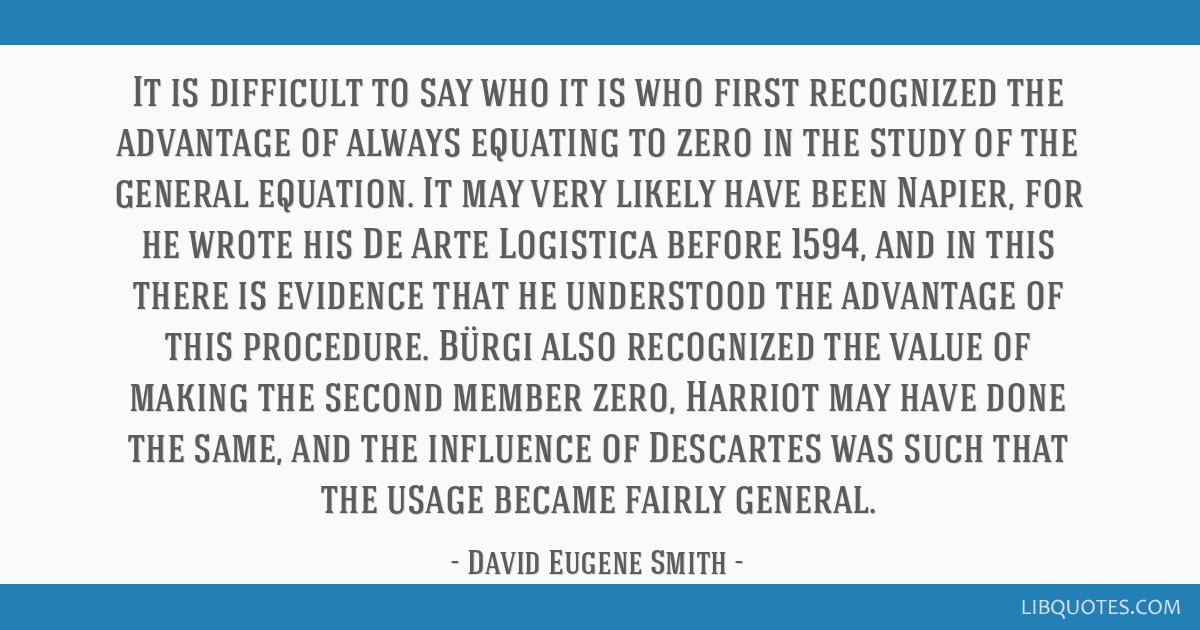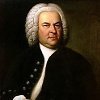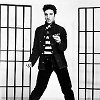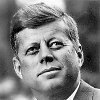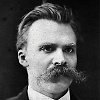It is difficult to say who it is who first recognized the advantage of always equating to zero in the study of the general equation. It may very likely have been Napier, for he wrote his De Arte Logistica before 1594, and in this there is evidence that he understood the advantage of this procedure. Bürgi also recognized the value of making the second member zero, Harriot may have done the same, and the influence of Descartes was such that the usage became fairly general.
History of Mathematics (1925) Vol.2
